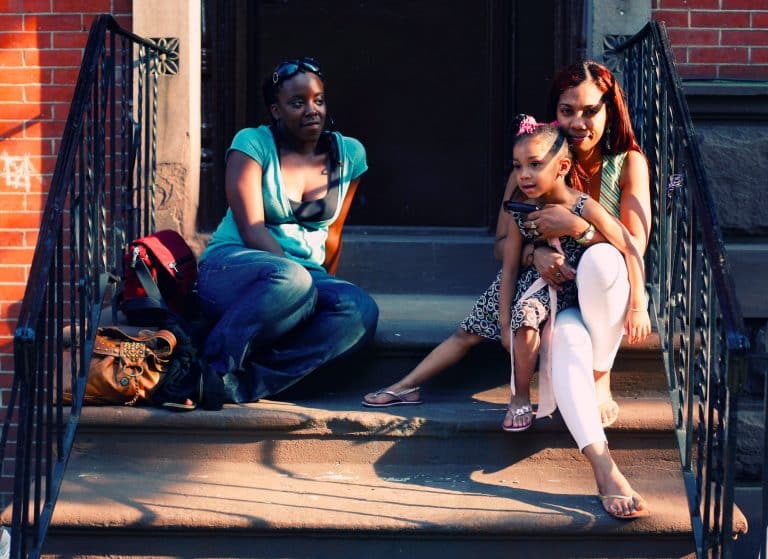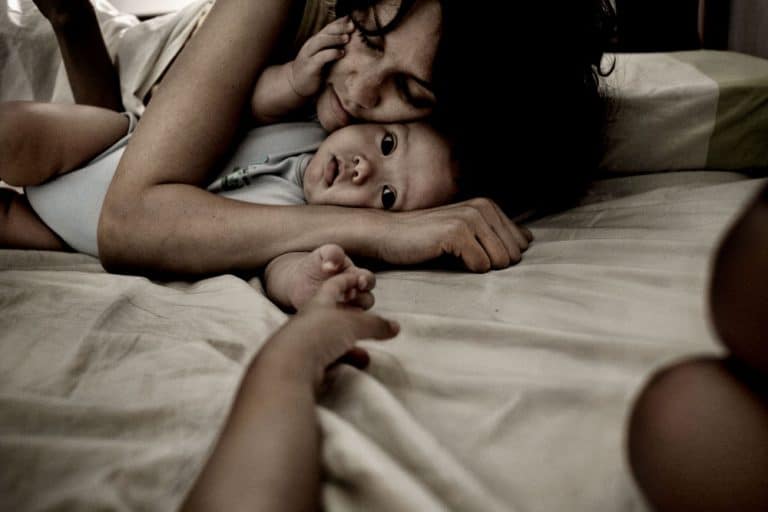
Image by Brandon King/Flickr, Attribution-NonCommercial-NoDerivs.
What Women Without Kids Are Teaching This Mom
Last week I wrote about the choice to have children or not, a topic I anticipated being sensitive, but one that I felt compelled to address nevertheless. I’ve been having so many wide-ranging conversations with friends about the topic — often an indication for me that there’s something worth exploring in writing.
A few commenters felt that I’d assumed more insight into the choice not to have kids than I should have; always grateful for feedback, I looked back at my language and realized that I taken some empathic leaps here:
“Just as parents inevitably wonder how their days would have been shaped without little ones, you’ll wonder how your days would have been shaped with them. We’re all peering over the fence, wondering what the path not taken is really like.”
Turns out — many people who don’t have kids aren’t peering over any fences. I stand corrected. When I asked for reflections on what it’s like not to have kids, I received a flood of responses. Many expressed feeling anything but ambivalent about the decision:
“Being without kids feels pretty great. I don’t feel any lack. Being child-free means I turn the love I have to family, friends, and my animals. It means I was able to be a good daughter to my dad as he became unwell and then died, and can also be to my mom as she ages. It means that I don’t worry about finances the way parents do. It means my eight godchildren look at me as a cool adult in their life. It means my partnership is happy, intense, and without distraction. We lead a life of fulfillment and purpose.”
“Deciding not to have kids was never a big decision, nor a fraught one. It was hardly a decision at all. I enjoy my friends’ kids and my nephews and niece, but I never wanted kids of my own. I’m 63 and never once looked back and wondered whether I made the right choice. It seemed self-evident.”
“I don’t feel like I’m missing anything. I feel so busy that I appreciate having control over my time. I can’t imagine having responsibility for another human 24 hours a day!”
On the other hand, some shared a sense that child-free women feel so judged by a society still hell-bent on seeing women’s worth as rooted in our capacity to procreate that they don’t have room to peer over the fence and/or admit that they do publicly:
“If you feel like you have to defend the choice as a good one all the time, there’s not a lot of room to talk about maybe being sad or confused about it not being a part of your life.”
Others pointed out that there also isn’t a lot of permission for women to express relief or gratitude for not having kids:
“There’s no room to celebrate women not having kids. People post pics of their kids all the time, but this morning when I thought of posting ‘I give thanks every morning that I’m childless,’ I didn’t do it because I could only imagine the backlash. Moms are very sensitive about their job and I get it; women’s work, especially motherhood, is undervalued. So I don’t often talk about my choice out of solidarity and it’s always seen as shade on motherhood. Which makes me want to actually throw shade at moms for dividing women. But I keep quiet and hold the baby (seriously, please, let it be me!), and stop the meeting until we find the breast pump, and pick up the soggy Cheerios from the floor, because I stand with my sisters or die.”
Some pushed back on the notion that it was a decision at all — pointing out that we don’t really have the right language for what is often an evolving journey full of the unknown, not a check box:
“The Western world loves the concept of free will. But I’m not buying it anymore. Half the women I know didn’t even make a choice to get pregnant. They had sex, got pregnant, and decided now was as good a time as any and opted to have a baby (or perhaps, if they were pro-life, felt as if they had no choice). Frankly, it’s an accident that I’m not a mother… I don’t really think about it that much! And that blows people away.”
“Not every woman has a choice. From both sides of the fence, there are millions of women for whom having children is not under their control. Not just the unintended pregnancy or infertility, but in both the U.S. and across the globe, the cultural expectation, for men as well as women, to produce the next generation. That expectation does not negate the intense loving bond between parent and child, in fact it may support it, but choice in childbearing is not universal.”
“It’s often not a choice but just the way life unspools. At 69 this all seems so long ago. But many career women of my generation never married; having it all wasn’t yet a concept.”
Many people expressed not wanting to have kids because they feel like they’ve already raised “kids” in their family of origin:
“I was the third oldest of 14 children and simply had enough of raising children by the time I was 21. I had a lot of responsibility for taking care of my younger siblings starting at the age of six and simply wanted the freedom to ‘be me’ in my adulthood. That feeling never really changed for me (though there were moments of few misgivings along the way).”
“I grew up in a really dysfunctional household with poor boundaries. I think part of the decision to not have kids comes from the feeling that I already raised two parents.”
In the same vein, multiple teachers wrote me, explaining that their days are so filled with kids that they can’t imagine also coming home to their own. Many worry that they wouldn’t have any nurturing energy left after a day in the classroom.
From a certain angle, birthing and nurturing children is an act of hope; after all, one has to believe that this is a planet worth bringing a baby into. Some aren’t so sure:
“I feel like the world is self destructing. Climate change is creating a space that makes the future of the planet and humans as a species precarious, and I don’t want to bring a generation into that suffering.”
The pattern I felt most inspired by and that, ironically, got my own ambivalence churning, was reflections about how not having kids freed women up to pursue meaning without as many limits:
“On my 36th birthday, I breathed a great big sigh of relief. I’d always worried that I’d live an ordinary life. I was relieved that at age 36, I’d reached none of the typical milestones. I was now operating in terra incognita. A true explorer; or at least that’s how I like to see it.”
“I am now living the creative life I have always wanted. And it’s hard, and awkward, and my heart is open, which means my heart gets broken, and I am happy and frustrated and embarrassed and it’s so great. I feel like my creative life is both my partner and my child. I got married to it and gave birth to it around the same age as most of my friends were doing those actual things.”
I read these reflections and I’m, quite frankly, jealous. Parenting inevitably narrows your focus and devours your time. How would my days take shape were they not so filled with the relentless labor of caretaking for little ones? I would write more, for sure. I would certainly read more. I would travel with less heartache. I would stay longer. Beyond that, I’m not sure; how can one possibly imagine what one might have been? Or as one person wrote in:
“The worst part of not having kids is that I will not personally experience birth, and that there are parts of myself that I will never get to know, never grow into. On the other hand, there would be parts of myself I WILL get to know and grow into because of not having kids.”
Exactly. We are the sum of our experiences and mothering is one important possibility (for some, not all). Nothing more. Nothing less.
My biggest takeaway is this: These conversations aren’t happening enough. We need more spaces where women who don’t have kids, whether they define that as a choice or not, can talk about and celebrate their lives without fear of judgment or reprisal. Like this documentary film in process. Like Rebecca Traister’s fantastic book All the Single Ladies. Like the NotMom Summit.
And what’s more, I think mothers like me have to make an effort to ask more truly open questions (meaning the kind we genuinely don’t know the answers to, not advice or opinion disguised as a question) of our friends who aren’t mothers. We need to listen. As I sat on a long flight, reading over nearly 100 messages I received, I felt lucky to be trusted with these reflections and struck by how much of my life is filled with conversations about and among parents.
This strikes me as one more area where our liberation is tied up together. When women without kids get the respect they deserve and the freedom to shape their own lives without societal backlash, women with kids are also released from feeling like their worth is defined by their mothering. Or as one commenter put it:
“I love dreaming that we could eventually take down the ‘fence’ and just be loving witnesses to each others lives.”

